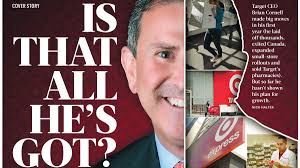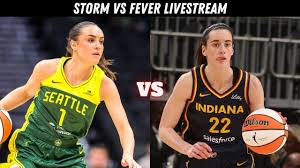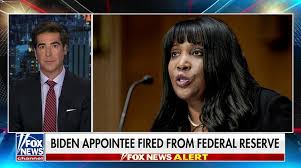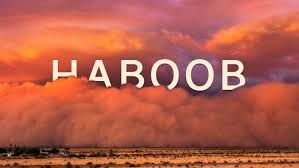
Introduction – The Role of Leadership at Target
Target Corporation isn’t just another retailer. It’s one of the most recognisable brands in the United States, known for blending affordability with a touch of style. Millions of customers affectionately call it “Tartary,” a nickname that reflects its unique balance between discount shopping and trendy appeal. But behind every successful retail giant stands a leader who drives the vision, steers through crises, and shapes the brand’s identity. That leader, for more than a decade, has been Brian Cornell, Target’s Chief Executive Officer.
The CEO of Target holds a position that extends beyond profit margins and quarterly earnings. This role carries the responsibility of defining Target’s culture, ensuring guest satisfaction, and navigating an increasingly competitive marketplace dominated by rivals like Walmart, Costco, and Amazon. When Target thrives, it’s often because its leadership finds ways to make shopping not only efficient but enjoyable. When it struggles, all eyes turn to the executive suite for answers.
Cornell’s era, which began in 2014, has been trans formative. He walked into a company reeling from a massive data breach and a failed Canadian expansion. Over the years, he reinvented the retailer through digital innovation, store redesigns, private-label successes, and the acquisition of Ship. For a time, he made Target one of the most admired retailers in America. But recent years have been far more complicated, with sales declines, customer backlash over social issues, and rising investor concerns.
As Target announced in 2025 that Cornell will step down in February 2026, handing the reins to Chief Operating Officer Michael Fiddelke, a new chapter in leadership is about to unfold. For Target, this moment is more than just a changing of the guard—it’s a test of whether the company can sustain its identity while regaining its momentum in a tough retail environment.

Brian Cornell—A Decade of Transformation (2014–2026)
When Brian Cornell became CEO in August 2014, Target needed a turnaround story. The company was struggling with its first CEO ousted in decades, bruised by missteps that damaged customer trust. Cornell was the first external CEO in Target’s history, a bold choice that reflected the board’s appetite for change. And change is exactly what he brought.
The Rebranding of Target’s Identity
Cornell’s first big move was to focus on Target’s brand identity—its reputation for offering affordable but stylish goods. Under his leadership, Target doubled down on exclusive private-label brands, like Cat & Jack (kids’ clothing), Good & Gather (groceries), and Threshold (home decor). These lines not only boosted sales but also differentiated Target from Amazon and Walmart, which leaned heavily on third-party brands and bulk pricing.
He also pursued high-profile partnerships with companies like Disney, Apple, and Ulta Beauty, transforming Target’s stores into multi-brand destinations. These collaborations gave shoppers more reasons to visit stores, even as e-commerce was surging.
Digital and Supply Chain Evolution
One of Cornell’s most enduring legacies was recognising early that digital shopping wasn’t a threat—it was an opportunity. He pushed aggressively into same-day delivery, drive-up services, and curbside pickup. The $550 million acquisition of Ship in 2017 was pivotal, allowing Target to compete with Amazon Prime’s speed and Walmart’s scale. By 2020, Target had turned its stores into mini-warehouses, capable of fulfilling online orders quickly and cheaply.
Challenges and Criticism
Yet, not everything was smooth sailing. Starting in 2022, Target’s growth slowed. Rising inflation hurt consumer spending, while intense competition pressured margins. By 2025, Target reported eight sales declines in ten quarters, including a 21% drop in net income in Q2 of 2025. On top of that, cultural controversies—such as rolling back Pride merchandise and reducing DELI programs—sparked criticism both externally and internally.
Cornell’s decade was a story of reinvention and resilience. He brought Target back from the brink and positioned it as a top retail player. But his later years reflected the reality of modern retail: even great leadership can’t escape market pressures and cultural divides.
The Man Behind the Brand – Brian Cornell’s Journey
To understand why Brian Cornell succeeded as Target’s CEO, it helps to look at the man himself. Born in 1959 in Queens, New York, Cornell’s early life was marked by challenges. He was raised by his grandparents after his mother became seriously ill, an experience he credits with shaping his resilience and empathy.
Education and Career Beginnings
Cornell attended the University of California, Los Angeles (UCLA), earning a bachelor’s degree in 1981. He later returned to UCLA for an MBA at the Anderson School of Management in 1991. Education was Cornell’s ticket out of hardship, and he often speaks about how those experiences gave him a sense of discipline and determination.
Career Across Major Brands
Before Target, Cornell built an impressive resume:
- Safeway – Chief Marketing Officer, shaping grocery retail strategies.
- Michaels Stores – CEO, overseeing the arts and crafts retailer.
- Sam’s Club (Walmart division) – CEO, giving him direct exposure to the competitive discount retail sector.
- PepsiCo – CEO of PepsiCo Americas Foods, managing one of the largest divisions of the company.
These diverse experiences gave Cornell a broad perspective: he understood branding, merchandising, operations, and scale. That mix made him a perfect fit for Target, which needed all those qualities in 2014.
Compensation and Recognition
As CEO, Cornell was handsomely rewarded. In 2023, his compensation reached $18.1 million, though it fell to $9.9 million in 2024 amid sales slumps. Beyond Target, he served as chairman of the Retail Industry Leaders Association, and sat on boards like Yum! Brands. By any measure, he is considered one of the most influential retail executives of his generation.
Cornell’s story is as much about resilience as it is about business. From humble beginnings to leading a Fortune 50 company, he embodies the American dream while redefining what leadership looks like in modern retail.

Michael Fiddelke – Target’s Insider Successor
If Cornell’s story was about bringing in an outsider to shake things up, Michael Fiddle’s rise is about continuity and culture. Unlike Cornell, Fiddelke has spent virtually his entire career at Target, starting in 2003 as an intern.
From Intern to COO
Over two decades, Fidel climbed the corporate ladder, holding roles across finance, merchandising, operations, and strategy. His most visible role came in 2019, when he became CFO, guiding Target through the uncertainty of the pandemic. He was instrumental in ensuring Target’s balance sheet remained strong while investing in growth.
By 2024, Fidel had been promoted to Chief Operating Officer, overseeing the Enterprise Acceleration Office, guest experience initiatives, and supply chain operations. In many ways, he became the architect of Target’s modern operational backbone.
Why He Was Chosen
The Target board highlighted three reasons for choosing Fiddelke as CEO:
- Deep company knowledge – He knows Target inside and out.
- Operational excellence – His record shows he can execute strategy effectively.
- Cultural fit – As a lifelong “Target guy,” he embodies the company’s ethos.
But investors aren’t entirely convinced. Critics argue that Target needed fresh thinking to reverse its sales slump. Fidel, they say, may represent “more of the same” at a time when disruption is necessary.
The Transition of 2026 – What’s at Stake
When Target announced in August 2025 that Cornell would step down and Fidel would take over in February 2026, Wall Street reacted harshly. Shares dropped more than 11% in a single day. Investors had been hoping for an outsider to bring bold new ideas, much like Cornell did in 2014. Instead, they got an insider who represents continuity.
Priorities for Fiddelke
As CEO, Fiddelke’s to-do list is daunting:
- Restore Sales Growth – Reverse eight quarters of sluggish performance.
- Rebuild Customer Trust – Address backlash over cultural issues without alienating core shoppers.
- Strengthen Digital Edge – Compete against Amazon and Walmart’s growing dominance.
- Revive Target’s “Cheap Chic” Magic – Make merchandising exciting again.
Why This Transition Matters
Target is at a crossroads. The leadership hand off is not just symbolic—it will determine whether the company remains a top-tier retailer or slides further into decline. Fidel will need to prove that his insider knowledge translates into innovation, not stagnation.
For customers, the question is simple: Will Target still feel like Target in five years? For investors, the stakes are even higher: can Target remain profitable and competitive in the toughest retail environment in history?

Humanitarian Side of Leadership – Beyond Numbers and Sales
One of the defining features of Target’s leadership, particularly under Brian Cornell, has been its emphasis on humanity. Unlike some retailers that see shoppers as nothing more than sales figures, Cornell championed the idea of treating customers as guests. This seemingly small distinction influenced everything—from how employees interacted with shoppers to how Target designed its stores.
Cornell often emphasised empathy as a leadership tool. During the pandemic, for example, Target was among the first major retailers to introduce hazard pay for front line employees, extend sick leave policies, and invest in safer working environments. While these measures carried financial costs, they boosted employee morale and built goodwill with customers who saw Target as a company that cared.
He also made community engagement a cornerstone of Target’s brand identity. Under his leadership, Target invested billions into education programs, sustainability efforts, and neighbourhood revitalisation. Cornell frequently spoke about how a retailer as large as Target carried not only economic power but also social responsibility.
Michael Fidel, as the incoming CEO, inherits this cultural foundation. Though he is seen more as an operator than a visionary, his long tenure at Target suggests that he values the same principles of guest-first service and community stewardship. The challenge will be maintaining these values while also navigating shareholder demands for stronger profits. Striking the right balance between humanity and performance could define his legacy.
Media Attention and Global Perception
Target’s CEO transition has attracted widespread media coverage, reflecting just how influential the company is in American culture. When the announcement broke in August 2025, nearly every major outlet—from The Guardian to Reuters to NBC—covered it as breaking news. This wasn’t just about a corporate shuffle; it was about the future of a company millions depend on for daily essentials.
Cornell’s leadership had long made him a media favorite. He frequently appeared on financial news shows, industry conferences, and business magazines, often framed as the “CEO who saved Target” after its 2014 troubles. But the tone of media coverage shifted in recent years. Instead of glowing praise, stories began highlighting Target’s declining sales, stock drops, and public controversies around cultural issues.
For Michael Fiddelke, the media spotlight will be both a challenge and an opportunity. As an insider with little public profile, he will need to prove himself on a much larger stage. Unlike Cornell, who came in with an established reputation, Fiddelke must build his credibility in real time, under intense scrutiny.
Global perception also matters. Target may be an American retailer, but its influence extends abroad, especially as social media spreads both positive and negative stories worldwide. Viral stories about Target’s Pride controversies, for instance, reached audiences far beyond U.S. borders. Fidel must therefore think not just about shareholders and U.S. customers but also about Target’s global image as a socially responsible, modern retailer.

Family Life and Leadership Values
Leadership is often shaped as much by personal values as by business strategy. For Brian Cornell, his upbringing in a working-class household and being raised by his grandparents after family hardships deeply influenced his worldview. He frequently credits those early challenges with instilling humility and empathy—traits that defined his leadership at Target.
Cornell has also spoken about the importance of family support throughout his career. Despite leading one of the largest companies in America, he often emphasised that leadership is not just about driving profits but about leaving a legacy of respect, fairness, and humanity. His ability to connect with people, whether employees or customers, reflects the grounding influence of his personal life.
Michael Fidel, though more private, also carries a strong reputation as a family-oriented leader. Colleagues often describe him as approachable, collaborative, and focused on building long-term relationships rather than chasing short-term wins. As he steps into the CEO role, these personal values will matter more than ever. In an era when customers demand authenticity and employees want purpose-driven workplaces, leaders who bring their humanity to the job often stand out.
Target’s culture has long celebrated these values—referring to customers as “guests” and creating a shopping experience that feels personal. If Fidel maintains this ethos, he will carry forward a tradition that goes far beyond the numbers on a balance sheet.
Inspirational Stories from Target’s Journey
Target’s story under its CEO’s isn’t just about market share and stock performance—it’s also about the human impact. Over the years, many moments have stood out as reminders that leadership decisions ripple far beyond boardrooms.
One example came during the COVID-19 pandemic, when Target introduced contactless curbside pickup almost overnight. This wasn’t just a business innovation—it was a lifeline for families trying to stay safe while accessing essentials. Customers shared stories of how Target employees went above and beyond, braving uncertain conditions to keep communities supplied.
Another example is Target’s investment in affordable children’s clothing lines like Cat & Jack. Cornell frequently highlighted stories of families who appreciated that Target made stylish, durable kids’ clothes available at reasonable prices. This wasn’t just a merchandising win; it was a way of meeting real human needs.
Even in controversies, lessons emerge. Target’s struggles with cultural debates—such as backlash over Pride merchandise—highlight the complex role retailers play in society. As one of the largest employers and retailers in America, Target’s decisions affect not just sales but also how millions of people feel represented and respected.
These stories underscore a broader point: Target’s CEO isn’t just managing a company—they are managing a cultural institution. The inspirational moments show what’s possible when leadership aligns business with human values. The controversies, meanwhile, reveal the stakes of every decision.

Public Speaking and Motivational Influence
While many CEO’s operate quietly behind the scenes, Brian Cornell became a notable public voice in the retail industry. He often delivered keynote speeches at industry conferences and leadership summits, sharing insights not only about Target’s performance but also about broader themes like resilience, innovation, and values-driven leadership.
Cornell’s style was approachable and direct. He didn’t rely on flashy corporate jargon; instead, he spoke plainly about challenges and opportunities. For example, when discussing digital transformation, he often compared it to “meeting guests where they are, not where we want them to be.” This simple phrasing captured the essence of adapting business to human behaviour.
Fidel, by contrast, has had fewer opportunities in the spotlight. Known internally as thoughtful and detail-oriented, he will now need to step into a more public role. His speeches and public appearances will be scrutinised as indicators of his leadership style. Will he be as charismatic and media-savvy as Cornell, or will he craft a different persona—one rooted in quiet execution and operational expertise?
Regardless of style, Target’s CEO has a platform that extends far beyond retail. With millions of customers and hundreds of thousands of employees, what they say can influence public debates about business ethics, community responsibility, and the future of work. For Fidel, developing his voice as a motivational and public leader will be a key part of his growth in the coming years.


